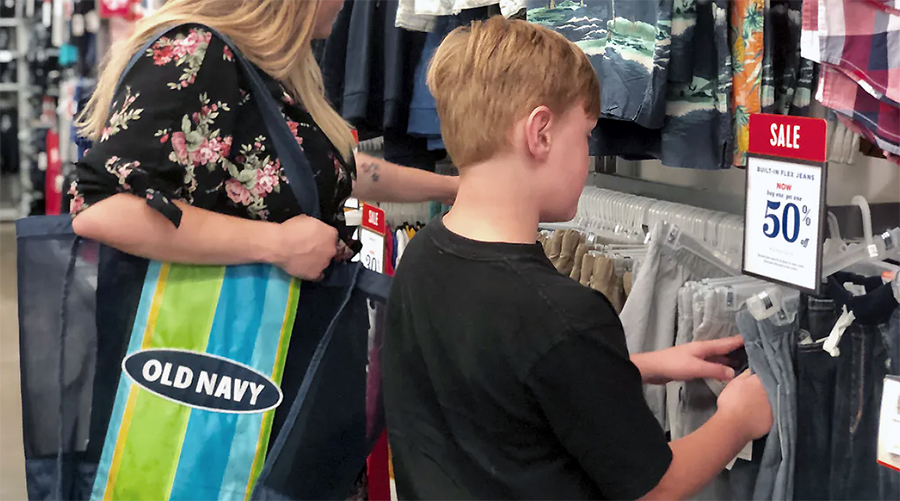Retail sales in the U.S. grew for the 11th consecutive month in July, according to Mastercard SpendingPulse*, which measures in-store and online retail sales across all forms of payment. With more cash in hand, fueled in part by the Child Tax Credit and pent-up savings, consumers drove U.S. retail spending growth, excluding auto and gasoline, to 10.9 percent compared to July 2020. This is nearly quadruple the average growth in the month of July.
At a national level, back-to-school spending is underway, impacting several sectors as anticipated in Mastercard’s forecast. Key retail trends from its July report include:
- The first of six monthly Child Tax Credit payments provided parents with an infusion of cash in the peak back-to-school shopping season with Apparel (+80 percent YOY) and Department Store (+44.8 percent YOY) sectors seeing an uptick in sales for the month. This was concentrated in the days immediately following the first Child Tax Credit distribution on July 15.
- Brick and mortar browsing has made its return, with in-stores sales making up 81.9 percent of total retail sales (ex-auto) for the month. In-store sales were up +15.5 percent YOY in July and weekends experienced positive spikes in spending as a result of in-store shopping.
- According to data released by the U.S. Census Bureau, new home sales fell to an 18-month low; however, consumers continue to spend on home improvements as the Furniture & Furnishings sector grew on a YOY (+3.2 percent) and YO2Y (+26.8 percent) basis.
“While e-commerce continues to play an increasingly significant role for retail, nothing replaces the in-store experience,” said Steve Sadove, senior advisor for Mastercard and former CEO and Chairman of Saks Inc. “July numbers reflect a return to the store. Consumers are shopping, spending and splurging across channels.”
Mastercard’s chief economist and head of Mastercard’s Economics Institute, Bricklin Dwyer, said, “Back-to-school shopping is back. Combined with greater savings and higher demand, the Child Tax Credit has provided a boost for families and is putting more money into retailers’ pockets.”
*Mastercard SpendingPulse’s findings are based on aggregate sales activity in the Mastercard payments network, coupled with survey-based estimates for certain other payment forms, such as cash and check.















